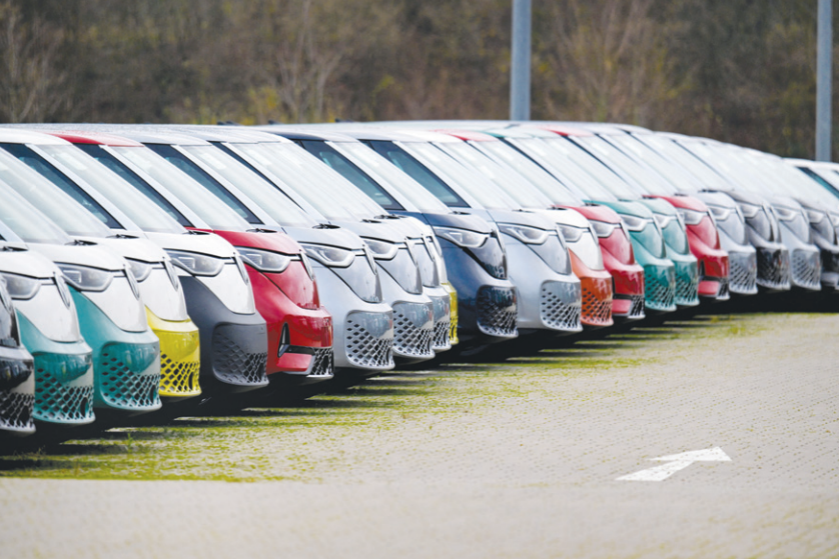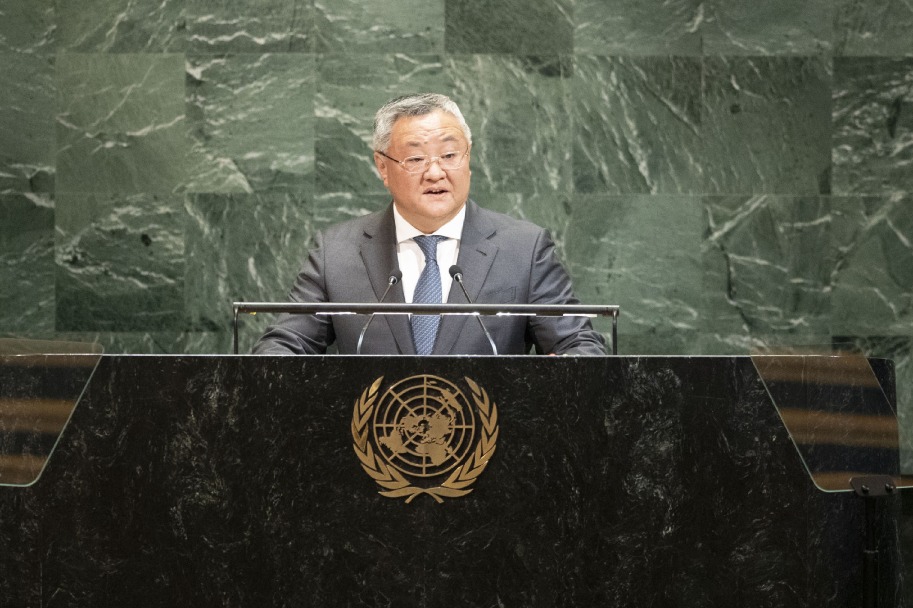'Miracle' grass spreads wonder of mushrooms


In the Pacific Islands countries, Juncao technology not only provides high-protein food, but also alleviates the shortage of forage, which helps the development of animal husbandry, and improves the living standards of farmers.
In 2019, Fiji's Ministry of Agriculture designated "optimizing the use of Juncao grass to enhance livestock production" as one of five initiatives. Local livestock companies such as Yaqara Pastoral Co have planted Juncao grass as green fodder for the dry season.
Besides Lesotho and Fiji, Juncao technology has also made its way into more than 100 countries along the routes of the China-proposed Belt and Road Initiative, ranging from Laos to the Central African Republic.
Juncao technology "supports the 2030 Agenda for Sustainable Development, making an important contribution to several SDG goals and targets--from poverty eradication to clean energy, gender equality to preserving biodiversity", said Maria Fernanda Espinosa Garces of Ecuador, the president of the 73rd Session of the UN General Assembly. Ma Zhaoxu, China's permanent representative to the UN, said the application of the technology has helped BRI countries and regions to meet the UN's sustainable development goals and has eased poverty so people can live better lives.
Under the China-UN Peace and Development Trust Fund announced by President Xi Jinping, a Juncao technology project was implemented in 2017, Ma said. Through training courses, seminars and production demonstration, the project helps many developing countries strengthen capacity-building in sustainable development, thus making a concrete contribution to synergies between the BRI and the UN's 2030 Agenda for Sustainable Development.
Juncao technology's ability to spread so fast in BRI countries is one of its advantages, according to Lin Zhanxi, a professor at Fujian Agriculture and Forestry University who invented the technology in 1986.
"Rich and untapped resources of Juncao grass (herbaceous plants) and mushroom species can be found in most of those countries," Lin said at the meeting at UN Headquarters. "Its flexible production models enable subsistence farmers' or small farmers' participation, as well as factory-scale production with large investment."
Lin said mushrooms have high nutritional value, contain crude protein and can be cultivated without pesticides or herbicide. They also have high medicinal value for improving immunity and fighting cancer.
"It is also not labor intensive. Because of these factors, (the cultivation work) is suitable for women and youth" as well as for people with disabilities, Lin added.
Currently, 54 varieties of mushrooms can be cultivated with Juncao grass, according to data from Fujian Agriculture and Forestry University.
In the 1980s in China, the mushroom industry became an important way for farmers to alleviate poverty and improve their livelihoods. Farmers cut down as many trees as they could to cultivate edible and medicinal mushrooms.
In 1983, Lin began research to find a sustainable way for the mushroom industry to develop while protecting forests, conducting tests on wild grass instead of wood logs or the sawdust of broadleaf trees as a mushroom substrate. He succeeded three years later.
Lawandi Ibrahim Datti, who is from Nigeria and is pursuing his PhD in the university's program, said he came to learn Juncao technology to benefit his country.
"I have learned a lot about how to cultivate mushrooms and plant grass for dual purposes (ecological control and animal feed)," said Datti.
Datti, who is from Jos North in Nigeria's Plateau state, has set up a demonstration center in Nabardo, Bauchi state, which is near his hometown.
The center owns a farm of about 25 hectares, and the local government gave him 1,000 hectares to plant Juncao for animal feed and to address ecological problems. The center's staff of more than 20 people includes farmers, youths, women and herdsmen.
Hu Meidong contributed to this story.
xiaohong@chinadailyusa.com































